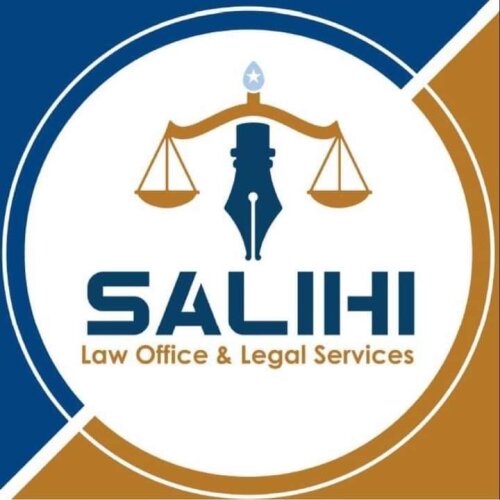About Sanctions & Export Controls Law in Mogadishu, Somalia
Sanctions and export controls are important areas of law in Mogadishu and across Somalia, given the country’s complex political and security situation. These laws regulate the movement of goods, services, and finances in and out of the country, often in response to international requirements imposed by bodies such as the United Nations Security Council or the African Union. Local authorities implement these rules to prevent the illegal export of materials that can be used for conflict, as well as to comply with international obligations targeting terrorism financing, arms traffickers, and those undermining peace and security in the region.
Why You May Need a Lawyer
Navigating sanctions and export control laws in Mogadishu can be complicated, especially for businesses, import-export companies, and individuals dealing with cross-border transactions. You may require legal help in situations such as:
- Facing allegations of violating international or Somali export restrictions
- Involvement in transactions with parties or countries under sanctions
- Applying for licenses to legally export or import goods that are regulated
- Responding to investigations by authorities or international bodies
- Ensuring compliance with both Somali laws and international requirements
- Understanding if your business partners or cargo are subject to restrictions
- Resolving disputes or penalties related to customs and export controls
- Obtaining guidance on financial transfers to and from foreign entities
Legal support is crucial to avoid significant penalties, reputational harm, or criminal consequences.
Local Laws Overview
In Mogadishu, sanctions and export controls are primarily governed by a combination of Somali law, international agreements, and regulations dictated by the United Nations Security Council. Key aspects include:
- Prohibitions on the export and import of certain categories of goods, such as weapons, chemicals, and dual-use items
- Restrictions on financing, banking, and financial transfers related to sanctioned individuals or organizations
- Customs requirements and inspections to enforce compliance at ports and border posts, particularly the Port of Mogadishu
- Obligations for companies to report suspicious activities or transactions that might breach sanctions
- Special controls on the transfer of technology, intellectual property, and sensitive information
- Enforcement actions by Somali authorities, sometimes in collaboration with international partners
Laws in this field evolve regularly, as Somalia works to improve its compliance with international standards and rebuild its legal infrastructure. There are also specific regional sanctions regimes that may affect certain transactions.
Frequently Asked Questions
What are economic sanctions?
Economic sanctions are legal restrictions placed on trade, investment, or financial transactions with certain countries, companies, groups, or individuals. In Somalia, such sanctions are often imposed to prevent the financing of conflict or terrorism.
What types of goods are commonly controlled for export in Mogadishu?
Export controls usually apply to weapons, ammunition, military technology, chemicals, and dual-use items that could be used for both civilian and military purposes. Humanitarian goods may be exempt but require careful documentation.
Do local and international laws apply at the same time?
Yes, both Somali law and international sanctions often apply. Businesses need to ensure compliance with domestic regulations as well as United Nations or African Union sanctions relevant to Somalia.
Can I trade with entities in countries subject to international sanctions?
Consultation with a qualified legal professional is essential, as trading with entities from sanctioned countries could lead to legal consequences unless an exemption or license is obtained.
How are export and sanctions laws enforced in Mogadishu?
Laws are enforced by Somali customs and security authorities. International partners may also play a monitoring role, especially at ports and border crossings.
Are there penalties for violating export control and sanctions laws?
Yes. Violators can face severe penalties, including fines, confiscation of goods, business license suspension, and, in some cases, criminal prosecution and imprisonment.
How can I find out if a product or partner is subject to controls?
A legal professional with experience in sanctions and export controls can review your products or partners against updated control lists and regulations to ensure compliance.
Is there a licensing system for exports in Somalia?
Yes, for certain controlled goods, businesses must apply to government authorities for export licenses. The requirements and processes vary depending on the items and destination countries.
What records should my business keep regarding exports?
Maintain accurate records of all shipments, invoices, licenses, correspondence, and compliance checks for at least several years in case of audits or inspections by authorities.
Where can I get further information or help?
Contacting a lawyer specializing in sanctions and export controls is strongly advised. You can also reach out to government ministries and relevant international organizations for further information.
Additional Resources
For those seeking advice or official guidance on sanctions and export controls in Mogadishu, the following resources can be helpful:
- Somali Ministry of Commerce and Industry: Handles business licensing and trade regulations
- Somali Customs Department: Administers export-import documentation and enforces controls at ports
- Ministry of Finance: Monitors financial transactions and compliance with financial sanctions
- UN Security Council Sanctions Committees: For the latest lists of sanctioned individuals and entities related to Somalia
- Legal aid organizations offering support for business and trade regulations
- Chambers of Commerce in Mogadishu: For networking and compliance resources for importers and exporters
Next Steps
If you believe your activities or business could be affected by sanctions or export controls in Mogadishu, it is important to take immediate action. Here is how you can proceed:
- Identify the nature of your products, services, or transactions to assess whether they may be subject to controls
- Gather all relevant documentation regarding your business activities or specific shipments
- Consult a qualified local lawyer or legal advisor with experience in sanctions and export controls
- Reach out to government offices or international bodies, as necessary, for licenses or clarification
- Train relevant staff in compliance requirements to avoid unintentional violations
- Stay updated on changes to laws and international regimes that might affect Somalia
- If facing investigations or allegations, act promptly to seek legal defense and respond to authorities in a timely manner
Understanding and complying with sanctions and export control laws in Mogadishu, Somalia, is essential for avoiding legal troubles and supporting broader international peace and security efforts.
Lawzana helps you find the best lawyers and law firms in Mogadishu through a curated and pre-screened list of qualified legal professionals. Our platform offers rankings and detailed profiles of attorneys and law firms, allowing you to compare based on practice areas, including Sanctions & Export Controls, experience, and client feedback.
Each profile includes a description of the firm's areas of practice, client reviews, team members and partners, year of establishment, spoken languages, office locations, contact information, social media presence, and any published articles or resources. Most firms on our platform speak English and are experienced in both local and international legal matters.
Get a quote from top-rated law firms in Mogadishu, Somalia — quickly, securely, and without unnecessary hassle.
Disclaimer:
The information provided on this page is for general informational purposes only and does not constitute legal advice. While we strive to ensure the accuracy and relevance of the content, legal information may change over time, and interpretations of the law can vary. You should always consult with a qualified legal professional for advice specific to your situation.
We disclaim all liability for actions taken or not taken based on the content of this page. If you believe any information is incorrect or outdated, please contact us, and we will review and update it where appropriate.










